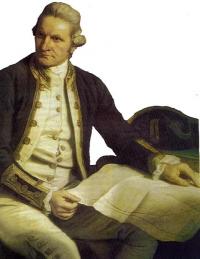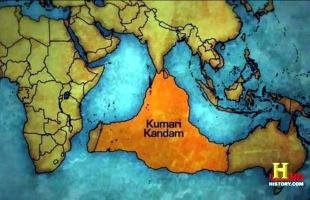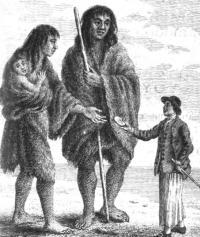The Internapalooza

The Internapalooza is the largest gathering of Silicon Valley interns, young engineers, and STEM students in the world! Over 20,000 students from colleges across the nation have signed up for previous events. We come together to meet fantastic companies, experience insanely great technology, learn from remarkable visionaries, and forge connections between one another that will define the future. Silicon Valley was formed by brilliant people but we will take it to new heights by building the greatest network the world has ever seen! Come start an incredible journey with your fellow interns as we takeover the entire AT&T Park in downtown San Francisco and start helping each other build an insanely great future!






Update: 19 October 2018: Transcript of the Marissa Mayer talk has been released:
[00:00:05] Marissa Mayer: Pick the offer and pick the opportunity where you’re going to learn the most.
[00:00:13] Host: This week’s episode is a bit different. Every summer I host a large STEM student gathering called Internapalooza. Thousands of interns from all over the Bay Area, and New York City attend. Over 20,000 STEM students have attended in the past. This year, Marissa Mayer was one of our keynote speakers. Marissa is well known for formerly serving as the president and CEO of Yahoo and being the 20th employee of Google. She recently co-founded a new startup called Lumi Labs, early stage technology incubator. In this week’s quick episode, we hear Marissa’s keynote talk at Internapalooza.
[00:00:53] Announcer: She needs no introduction. Our final speaker is one of the most admired tech executives in Silicon Valley, Marissa Meyer. She is currently running Lumi Labs, an incubator in downtown Palo Alto, focused on consumer media and AI. It’s run out of the old Google office, the same place she began her career in 1999. Before that, she served as CEO of Yahoo for about five years, beginning in 2012 and ending with the company’s sale to Verizon.
Prior to joining Yahoo, she spent 13 years at Google where she was the 20th employee and influenced many of the company’s successful signature products. Relevant for our purposes today, it’s worth noting that when she chose to join Google, she was weighing 14 different job offers. We’re incredibly lucky to have her here with us tonight. Please, join me in welcoming Marissa Meyer to the stage.
[00:01:43] [applause]
[00:01:48] Marissa: Thank you. I’m really excited to be here at Internapalooza. I thought I would tell the story that corresponds to the introduction, the weighing of the 14 job offers and all that, but I also say this year’s summer has actually been a lot of deja vu for me because I’m back in the old Google office where I started my career 19 years ago. I was sitting where all of you were 20 years ago, because I was finishing my internship during my master’s, I did a two-year master’s and an internship in between. About a year later, I had to make a decision about what company I wanted to go and join. I think the broad headline that I would say is, pick the offer and pick the opportunity where you’re going to learn the most.
My background, it was 1999, it was the height of Web 1.0, the bubble was huge. Company was IPOing, worth billions immediately. If you were graduating computer science or interested in technology, you could get as many job offers as you wanted to get. Ultimately, I got about 14, made a sport of going and getting all these offers. I got offers for a lot of different opportunities — some to teach like at Carnegie Mellon, teaching programming because I had done that at Stanford, big tech companies like Oracle, lots of little startups, consulting, research firms, all kinds of different companies.
At the end of it, I could pick the best of each type of job offer. I knew if I was going to a big company, I’d go to Oracle. I knew if I was going to a startup, it would be Google. I knew if I was going to go teach, it would be Carnegie Mellon.
I had a really hard time deciding across fields. How do you take things that are so different and weight them together? I thought about a lot of different decisions that I had made and were there things across those decisions that they all had in common. I sat down, wrote a list of decisions I was really happy with that I had made. They included going to Stanford, changing my major to symbolic systems, doing one internship at SRI down in Menlo Park, doing another internship at the Union Bank in Switzerland, in Zurich.
When I looked across all those different decisions, they had two things in common. One, I always surrounded myself with the smartest people I could find. Two, I always did something I was a little not ready to do, where at the end of the first day I would sit down on my back and be like, “What was I thinking? Why did I think this was a good idea?” When I looked across those different job offers, that was really what set the Google offer apart. I loved Larry and Sergey, I loved their vision for how search could change the world. I loved the fact that they had made this amazing jump from being Stanford PhDs who didn’t shower, ate pizza for breakfast, rollerbladed all the time, didn’t apologize when they ran into you on said rollerblades.
They had made this amazing journey to being businessmen who had a vision of how search could change the world and the company that they wanted to lead. I was also really impressed with some of their first employees, like Craig Silverstein, who to this day is one of my closest friends, who’s just one of the smartest people that I’ve ever met. I just knew that by going to Google and working alongside people like that, it ultimately would challenge me to think harder about things, achieve more and work on problems that were going to have a bigger impact.
The other thing, this notion of doing something you’re not ready to do. You want to push yourself. I think that’s really what it comes down to in terms of learning. Larry and Sergey from the very beginning would say, “We want to build a Fortune 500 company.” In honesty, I thought that they had about a 2% chance of succeeding. I gave all the other startups a 0.2 chance of succeeding.
Overall, the fact that they wanted to try and do that, the fact that Google, the name itself now is almost a punch line in terms of jokes, I can imagine my father saying, “Yes, when Marissa graduated from Stanford, she went to this company called, get this — it had this silly name of Google.” I knew that weighing it alongside of other things — One of the other opportunities I really thought a lot about was McKinsey for consulting. I knew that I would be very good at consulting. I didn’t know if I’d be a great software engineer and I wanted to challenge myself if I went to Google, to see what kind of software engineer I could be.
I also have the observation, having had friends work at McKinsey — McKinsey, the problem is that, when I was talking to a lot of my friends, they would make a presentation, they would have an idea for the changes that should be made in the company, and they’d make their presentation, their recommendations, and then they’d leave. Then, all the executives that they presented to would stay there and ultimately make the decision.
I realized, as glamorous as it was to go to McKinsey and get to go and give advice to Fortune 500 CEOs, CIOs, et cetera, I would learn a lot more going to Google and trying to build a Fortune 500 company, even if we failed, than I would giving advice to them, because I would actually get to be in the room where those decisions get made, and understand how do you decide to go after a big deal? How do you decide to change your hiring process? How do you decide how to advance your product strategy? Being in those meetings, I think, is much more valuable and the type of learning you’ll get.
If you look at those two tenants and principles, they really are about learning. You learn more from having smart people who challenge you all around you. You learn more by doing things that you don’t feel completely ready and prepared to do. I would just really encourage that when you’re looking across different opportunities, you try and take the one that you’re going to learn the most from. I would also say that, from that, also don’t feel pressure to pick from an obvious set opportunities.
There’s certain times in your life where you can do a very specific thing. In particular, going to be almost the opposite of Peter Thiel here, but decide “Wait, I want to go for more education, I want to go and do graduate work, I want to stay in school longer.” That’s very hard to do 10 years from now. That’s very easy to do right now. Similarly, it’s really hard later to say, “Okay, I want to start a company,” or “I want to go to a really tiny company.” That’s much harder to do in your 30s than when you’re graduating from your undergraduate or your graduate work.
So, if you have that inclination, listen to that, which is also a chance for me to get a shameless plug. I now have a startup of my own. This is the first company I’ve started, which is Lumi Labs, we have a booth over here. We’re going to be working overall in the media space, artificial intelligence, areas that I spent a lot of my career working in. That moment, being able to start a company, being able to go on for more school and really doing whatever you think is going to push you to learn the most, is ultimately the way that I would recommend that ultimately you move. With that, I thank you, and I guess I’ll just turn it back to Cory and the organizers. Thank you so much.
[applause]
[00:08:02] SHOW CLOSE

































